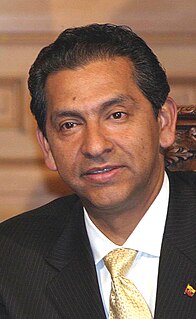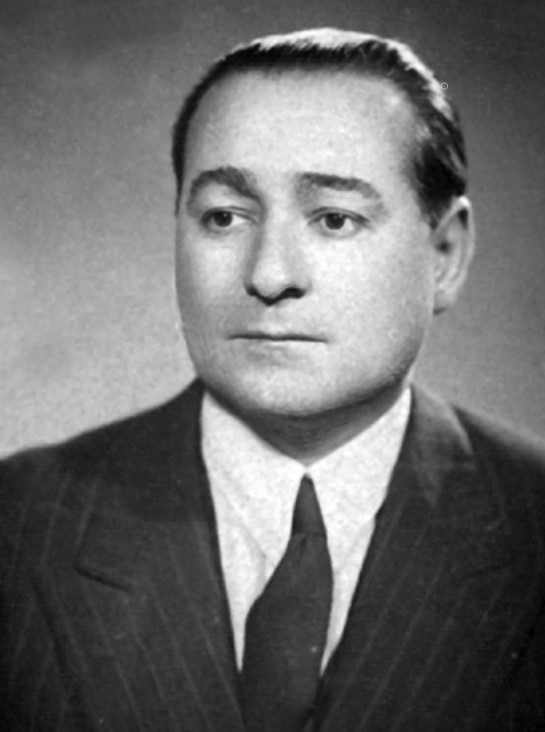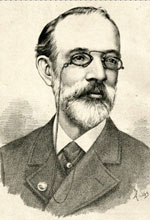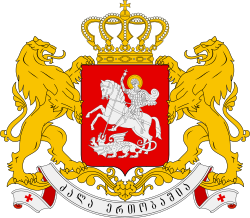
General elections were held in Ecuador on 20 October 2002, with a second round of the presidential elections on 24 November. The result was a victory for Lucio Gutiérrez of the PSP–MUPP–NP alliance, who won the run-off with 54.8% of the vote. The Social Christian Party emerged as the largest party in the National Congress, winning 24 of the 100 seats.

Early general elections were held in Trinidad and Tobago on 6 November 1995, after the ruling People's National Movement had seen its majority reduced to a single seat due to a defection and a lost by-election. The results saw the PNM and the United National Congress both won 17 seats. Although they had received fewer votes, the UNC was able to form a coalition with the two-seat National Alliance for Reconstruction, allowing UNC leader Basdeo Panday to become the country's first Prime Minister of Indian descent. Voter turnout was 63.3%.

Constituent Assembly elections were held in the Democratic Republic of Georgia between 14 and 16 February 1919. The electoral system used was party-list proportional representation using the D'Hondt method in a single nationwide district. The result was a victory for the Social Democratic Labour Party of Georgia, which won 81% of the vote, and 109 of the 130 seats. In by-elections held in spring, they lost four seats and the Armenian Party in Georgia - Dashnaktsitiuni and the Georgian National Party both won seats.

Parliamentary elections were held in the Georgian SSR on 28 October 1990, with a second round on 11 November. They were the first free parliamentary election in since 1919, and saw Round Table-Free Georgia emerge as the largest party in Parliament, with 155 of the 250 seats. Voter turnout was 69.9%.

Presidential elections were held in Georgia on 5 November 1995. The result was a victory for Eduard Shevardnadze of the Union of Citizens of Georgia, who won 77.0% of the vote, with a 68.3% turnout.

General elections were held in Turkey on 10 October 1965. The result was a victory for the Justice Party, which won 240 of the 450 seats. Voter turnout was 71.3%.

General elections were held in Turkey on 21 July 1946, the first multi-party elections in the country's history. The multiple non-transferable vote electoral system was used. The result was a victory for the Republican People's Party, which won 395 of the 465 seats.

General elections were held in Turkey on 27 October 1957. The electoral system used was the multiple non-transferable vote, with each electoral district electing an average of 9 members. The result was a victory for the Democrat Party, which won 424 of the 610 seats.

General elections were held in Bolivia on 1 July 1979. As no candidate in the presidential elections received a majority of the vote, the National Congress was required to elect a President. However, the Congress failed to elect a candidate after three ballots, and instead selected Senate leader Wálter Guevara to serve as Interim President for a year on 8 August. Guevara was later overthrown by a military coup led by Alberto Natusch on 31 October. Fresh elections were held in June 1980.

Constitutional Assembly elections were held in Syria on 16 November 1949, with a second round on 25 November. The result was a victory for the People's Party, which won 63 of the 114 seats.

Parliamentary elections were held in Georgia on 31 October 1999, with second rounds in some constituencies on 7 and 14 November, and repeat elections in two constituencies on 28 November. The result was a victory for the Union of Citizens of Georgia, which won 131 of the 235 seats. Voter turnout was 67.9%

General elections were held in Cuba on 1 November 1920. Alfredo Zayas y Alfonso won the presidential election, whilst the National League emerged as the largest faction in the House of Representatives, winning 31 of the 59 seats.

Parliamentary elections were held in Brazil on 15 November 1970. The result was a victory for the National Renewal Alliance Party, which won 223 of the 310 seats in the Chamber of Deputies and 40 of the 46 seats in the Senate. Voter turnout was 77.5% in the Chamber of Deputies election.

General elections were held in Italy on 29 October 1882, with a second round of voting on 5 November. The "ministerial" left-wing bloc emerged as the largest in Parliament, winning 289 of the 508 seats.

Parliamentary elections were held in Brazil on 15 November 1978. The National Renewal Alliance Party won 231 of the 420 seats in the Chamber of Deputies and 15 of the 23 seats in the Senate. Voter turnout was 81.7%.

Parliamentary elections were held in Portugal on 19 October 1879. The result was a landslide victory for the Progressive Party, which won 106 seats.

Parliamentary elections were held in Portugal on 17 November 1895. They were boycotted by the Progressive Party and the Portuguese Republican Party, resulting in the Regeneration Party and a small number of independents winning all the seats.

Parliamentary elections were held in Portugal on 26 November 1899. The result was a victory for the Progressive Party, which won 91 seats.

Parliamentary elections were held in Portugal on 8 November 1925. The result was a victory for the Democratic Party, which won 83 of the 163 seats in the Chamber of Deputies and 39 of the 70 seats in the Senate. With a military coup the following year and the subsequent Estado Novo period, they were the last truly multi-party elections in the country until the 1975 Constituent Assembly election.

Parliamentary elections were held in Colombia on 16 March 1958 to elect the Senate and Chamber of Representatives. They were the first elections held under the National Front agreement, which only allowed the Conservative Party and the Liberal Party to contest the elections, and allocated 50% of the seats in both houses to each party. As a result, the main contest at the elections was between factions within each party.



















